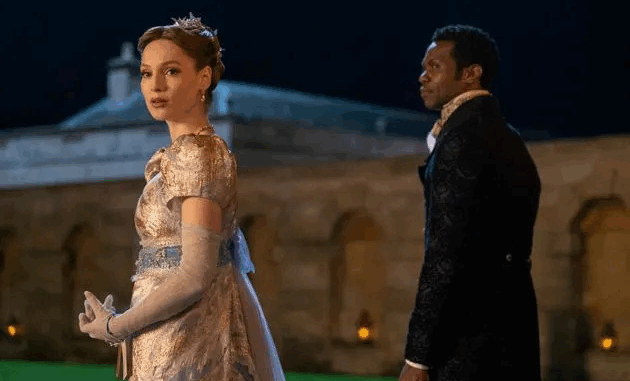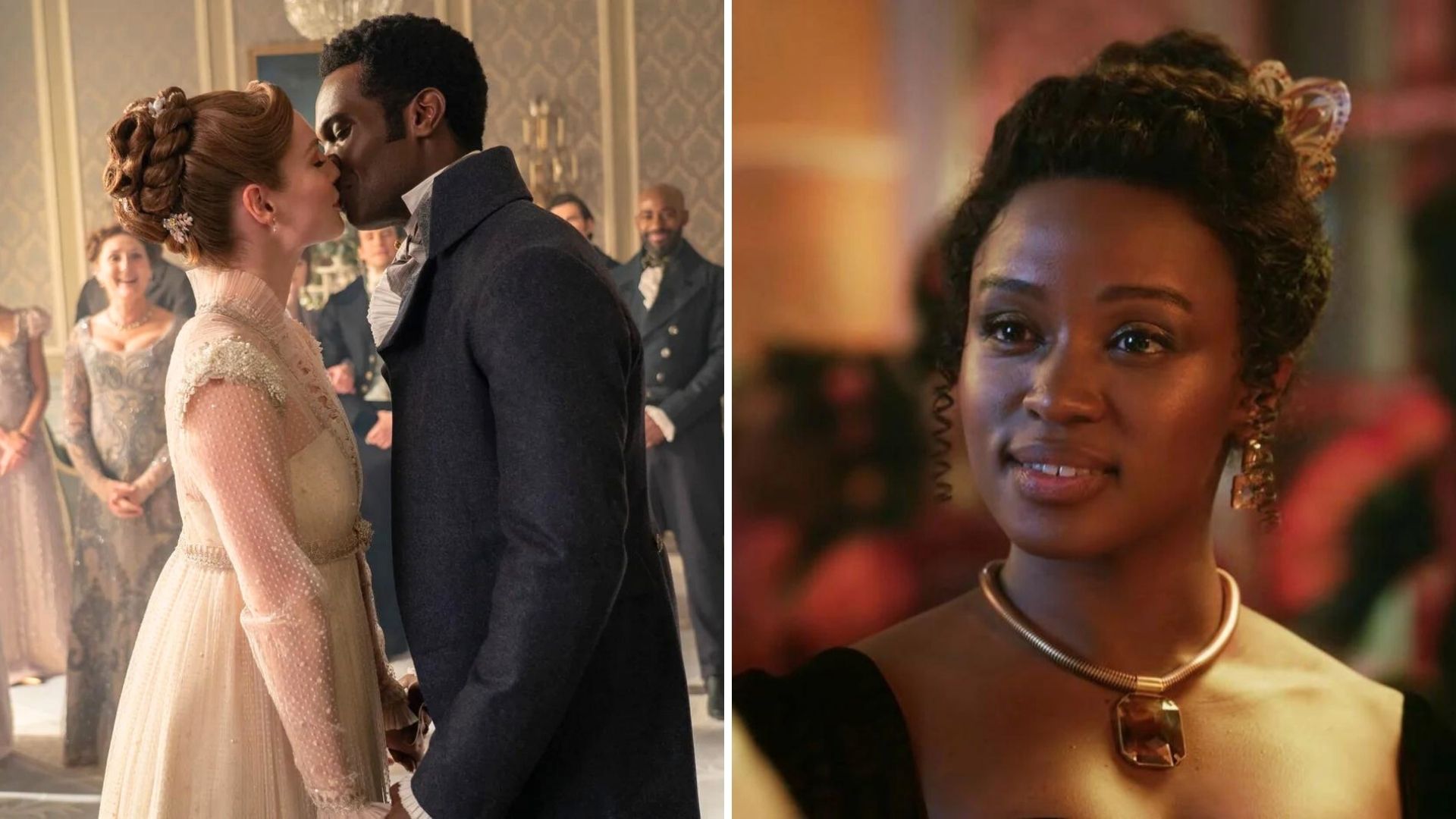
Bridgerton author Julia Quinn is speaking out for the first time about the passionate — and at times harsh — reactions from fans following a major creative pivot in the Netflix adaptation of her beloved historical romance series. The twist? Reimagining the character of Michael Stirling as a woman named Michaela — a gender swap that marks one of the show’s most radical departures from the original novels.
In her first in-depth comments since the season’s controversial ending aired, Quinn addressed the decision and its fallout during an interview with Us Weekly, conducted while she served as a judge for The Novelry’s “Next Big Story” competition. Though she anticipated the storyline would stir discussion, she confessed she hadn’t expected just how intense, personal, and at times cruel some of the feedback would be.
“I knew it was going to be a big deal,” Quinn said, acknowledging the weight of the change. “I think it is a bigger story change than making the characters more racially diverse. I did not expect the level of meanness among some of the fans.”
The move sparked a firestorm online. While many viewers embraced the fresh interpretation as a progressive evolution of the Bridgerton universe, others accused Quinn of “selling out” or betraying the source material. Some comments, she revealed, turned unexpectedly aggressive and deeply personal — criticism that caught even a seasoned author like Quinn off guard.
“I expected some disappointment,” she admitted. “But I didn’t expect people, like, calling me names and saying, ‘Go deposit your big fat check,’ or, ‘You’re a terrible person.’ That was a little strange. But I’m fine.”
Despite the backlash, Quinn emphasized that the decision wasn’t made lightly or without her input. She was directly involved in discussions with Bridgerton showrunner Jess Brownell and was aware of the gender swap well in advance. It wasn’t a last-minute surprise — it was a collaborative creative decision.
“It was a done deal,” she said plainly. “I wanted to understand what they were going to do, and I wanted to have some input in how they were going to do it.”

The character in question, Michael Stirling, features prominently in When He Was Wicked, the sixth novel in the Bridgerton series. The book explores the emotional complexity of Francesca Bridgerton’s journey as she grieves the death of her husband John and falls in love with his cousin, Michael. In the Netflix series, Francesca — portrayed by Hannah Dodd — marries John (Victor Alli), and later meets his cousin Michaela, played by Masali Baduza. That last-minute reveal set the internet ablaze.
One of Quinn’s main concerns throughout the adaptation process was preserving the emotional integrity of the original storyline — especially the depth of Francesca’s grief.
“There were certain parts of the story that I wanted respected,” she explained. “Like the fact that Francesca really loved John. I know that a lot of people think there were things that happened in Season 3 to indicate otherwise, but she does. Trust me.”
That grief, she insists, is the emotional core of the story — and it’s shared by both Francesca and Michaela in the updated narrative. “That needed to be an important part — that they are both mourning him,” Quinn said. “Because that’s the crux of the story. In When He Was Wicked, they both feel terribly guilty because they both loved this person.”
Even with all the controversy, Quinn stands by the decision. She acknowledged that adaptations are inherently different from books, and what works on the page doesn’t always translate directly to the screen. Her message to fans? Both versions can exist in harmony.
“If you can’t handle it, there’s always the book,” she said. “I’m not going to rewrite the book, and you can have one of each.”
While some longtime readers have expressed concern that the gender-swapped adaptation might dilute the emotional depth of the original romance, author Julia Quinn remains steadfast in her belief that the heart of the story remains intact. In fact, she views this bold change as an opportunity to expand the narrative’s emotional reach and create space for even more viewers to see themselves reflected on screen.
“Anything that allows more people to see themselves in the story is a good thing,” Quinn stated firmly. Her words underscore a growing movement in television and literature alike — one that embraces inclusivity without sacrificing the soul of the original material.
Importantly, Quinn revealed that she hasn’t been entirely in the dark when it comes to the creative direction of the next chapters. While she hasn’t read the full scripts, she’s been kept in the loop about the development of Francesca Bridgerton’s arc, and what she’s seen so far has left her feeling confident and hopeful. “I have some sense of what’s gonna happen,” she shared. “And I think it’s going to be a heart-wrenching, emotional season — which is what When He Was Wicked was. Out of all the novels, that one really stands apart. It’s quite different from the others.”
Indeed, When He Was Wicked has always held a unique place in the Bridgerton canon. With its exploration of grief, guilt, and the complicated journey of falling in love after loss, it presents one of the most emotionally nuanced stories in the series. And now, with Francesca and Michaela at the center, the adaptation is poised to reimagine that emotional landscape in a way that’s both faithful and fresh.
That said, fans eager to watch Francesca and Michaela’s love story unfold on screen will need to be patient. Season 4 of Bridgerton will shift the spotlight to another sibling romance that of Benedict Bridgerton and Sophie Beckett — whose dynamic promises its own emotional tug-of-war and Cinderella-esque magic. But the seeds of Francesca’s storyline have already been planted, and with Netflix confirming the show’s renewal through Season 6, it’s only a matter of time before her arc takes center stage.
Alongside Francesca, other beloved Bridgerton siblings like Eloise, Gregory, and Hyacinth remain on the horizon — each with a story waiting to be told. In this evolving universe, no character is left behind for long.
As fans await the 2026 premiere of Season 4, Quinn encourages readers and viewers alike to remain open-minded. Whether they prefer the original novels or embrace the show’s reimagined versions, she believes there’s value in both experiences.
“I think it’s gonna be great,” she said with conviction. “And the beauty of storytelling is that there’s room for more than one version.”
It’s a message that feels especially fitting for Bridgerton — a series that has always walked the line between history and reinvention, tradition and transformation. And as it continues to evolve, Julia Quinn’s unwavering support offers a reminder: stories grow, characters change, but the heart of it all love in all its forms remains.